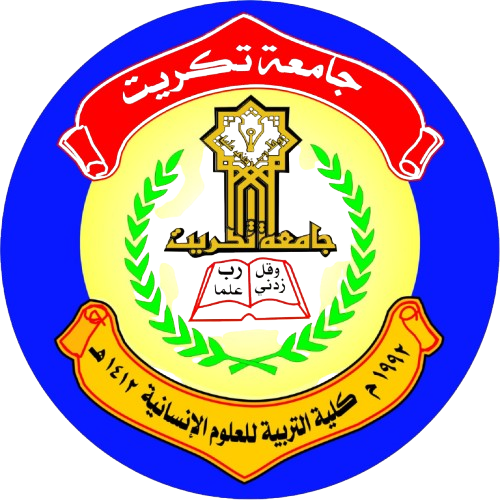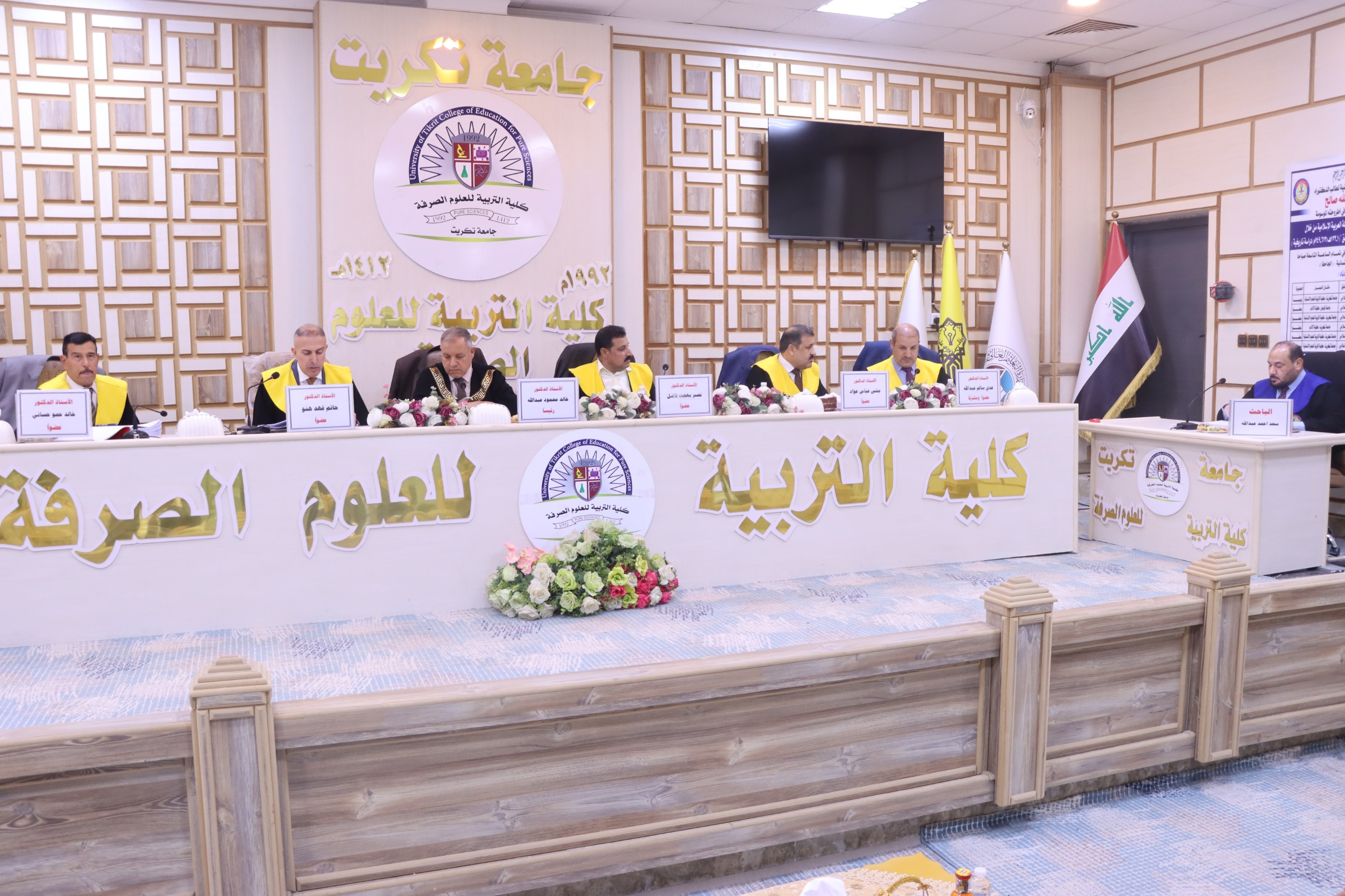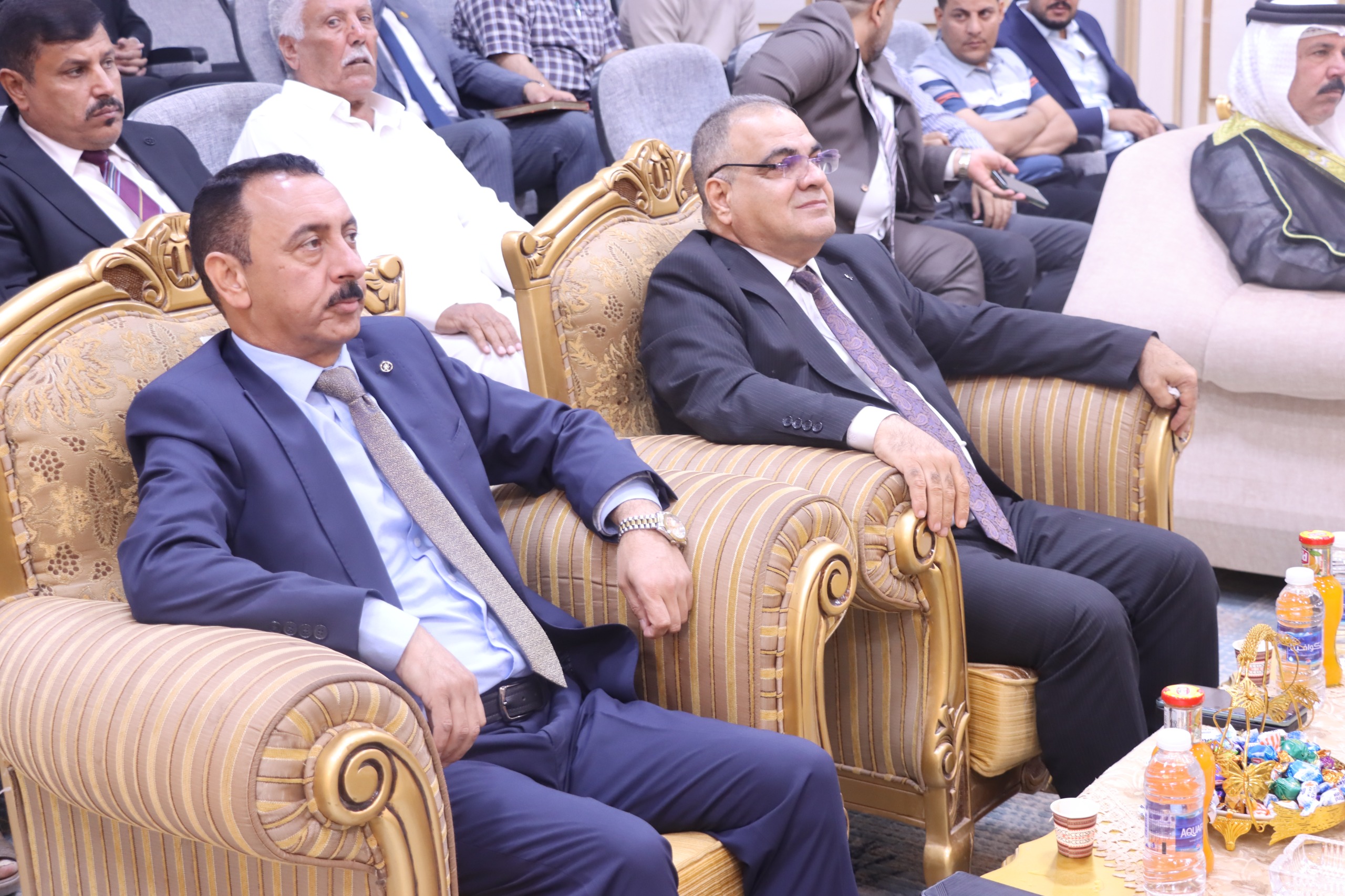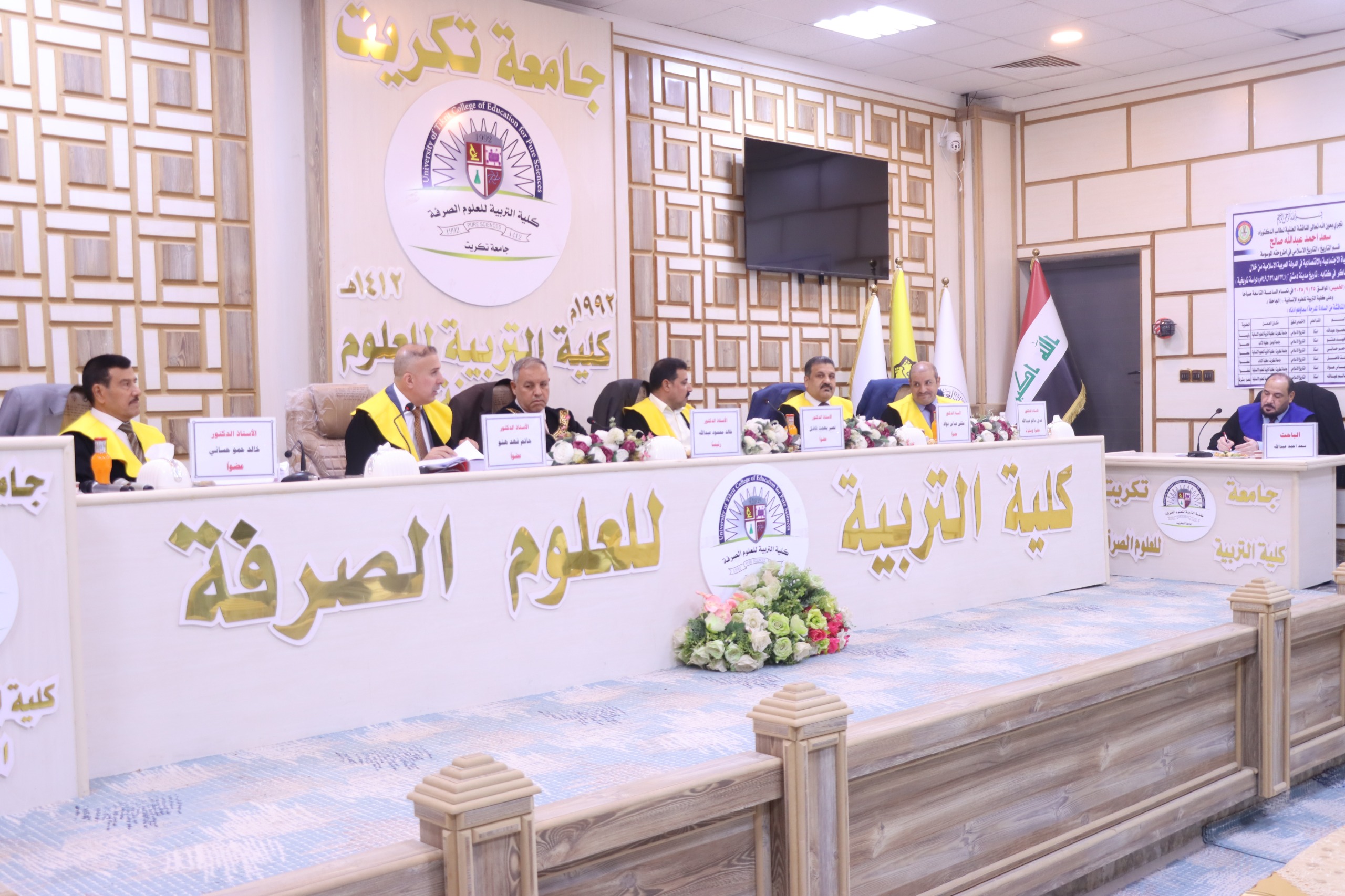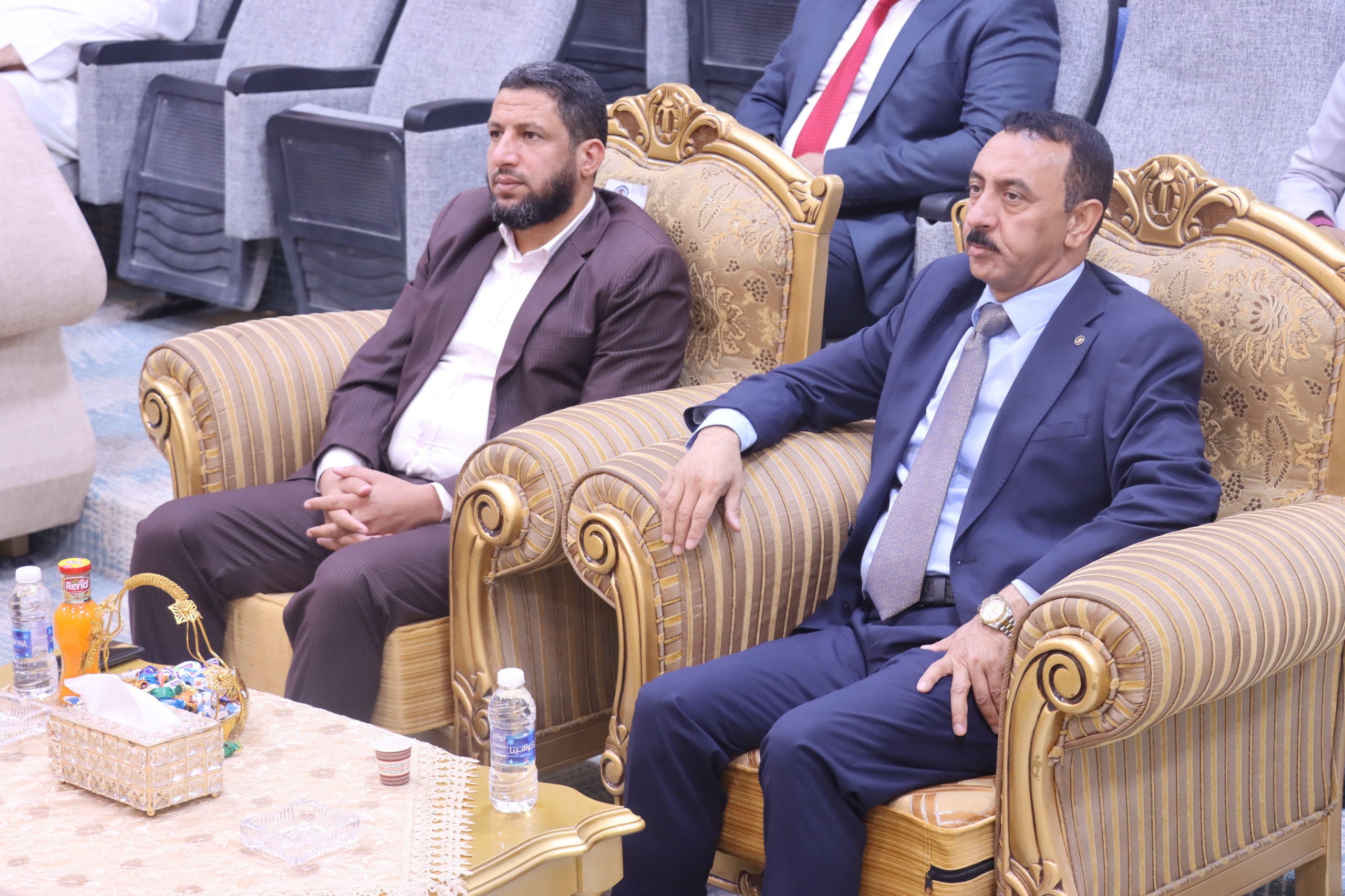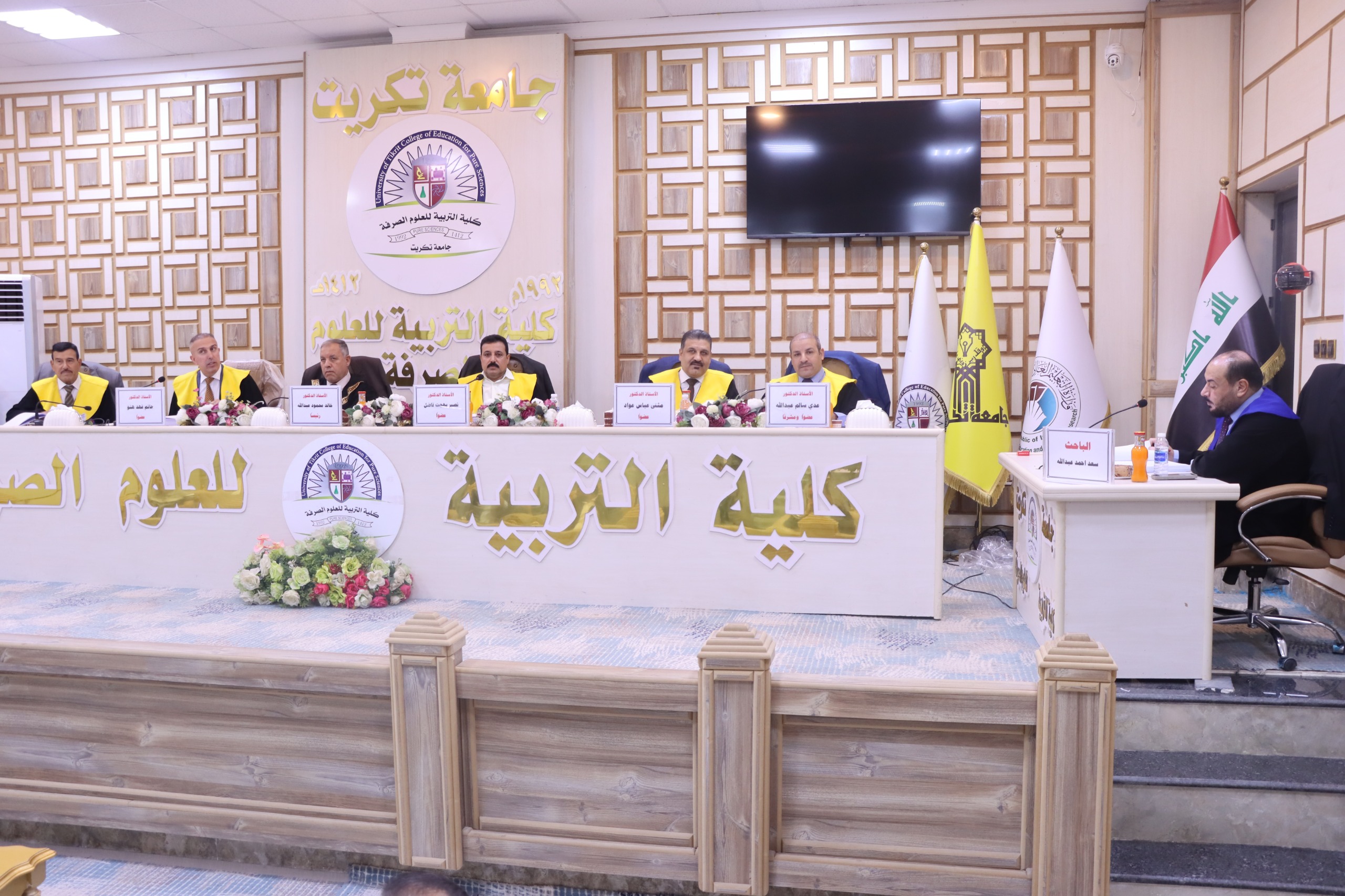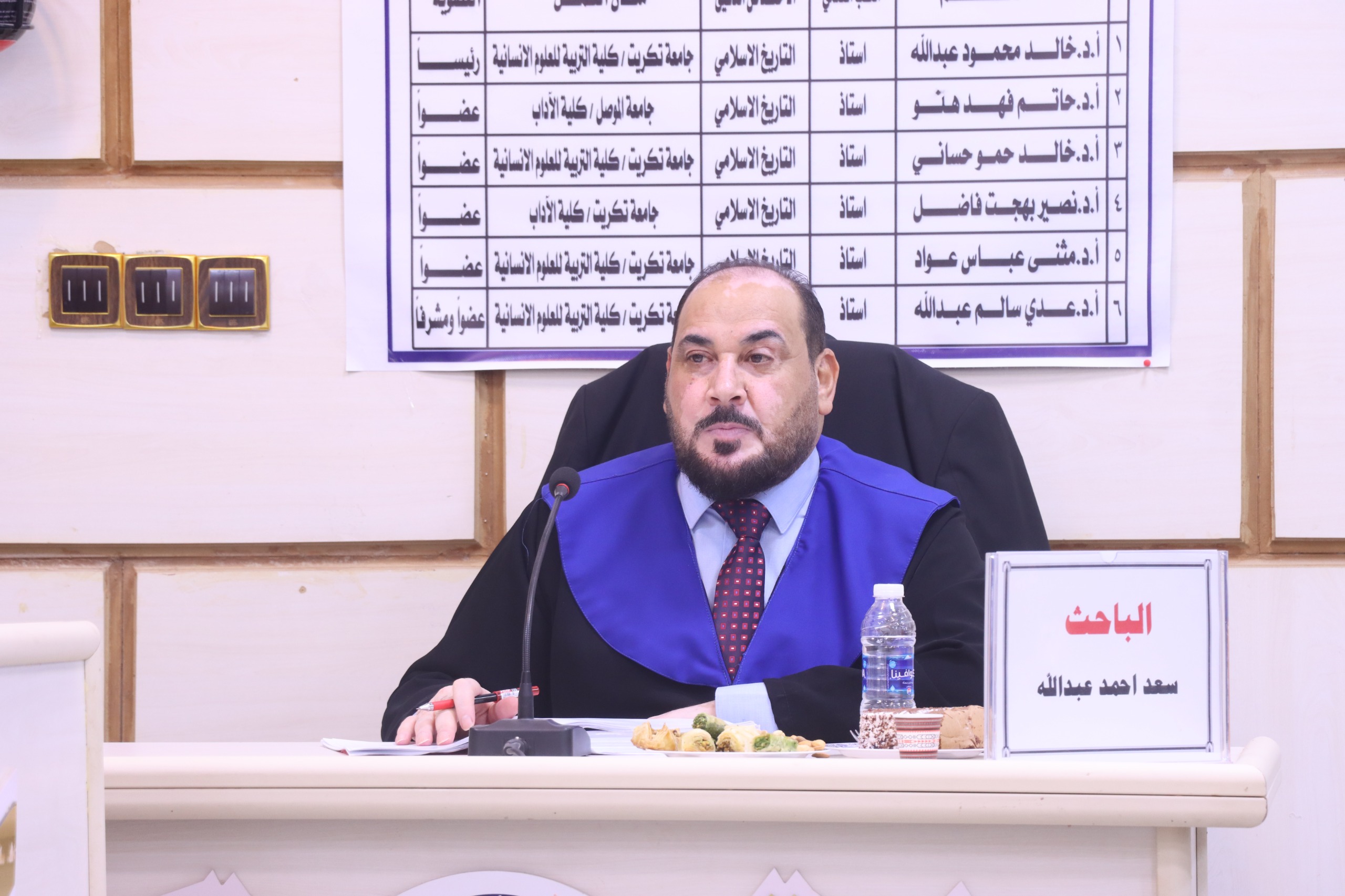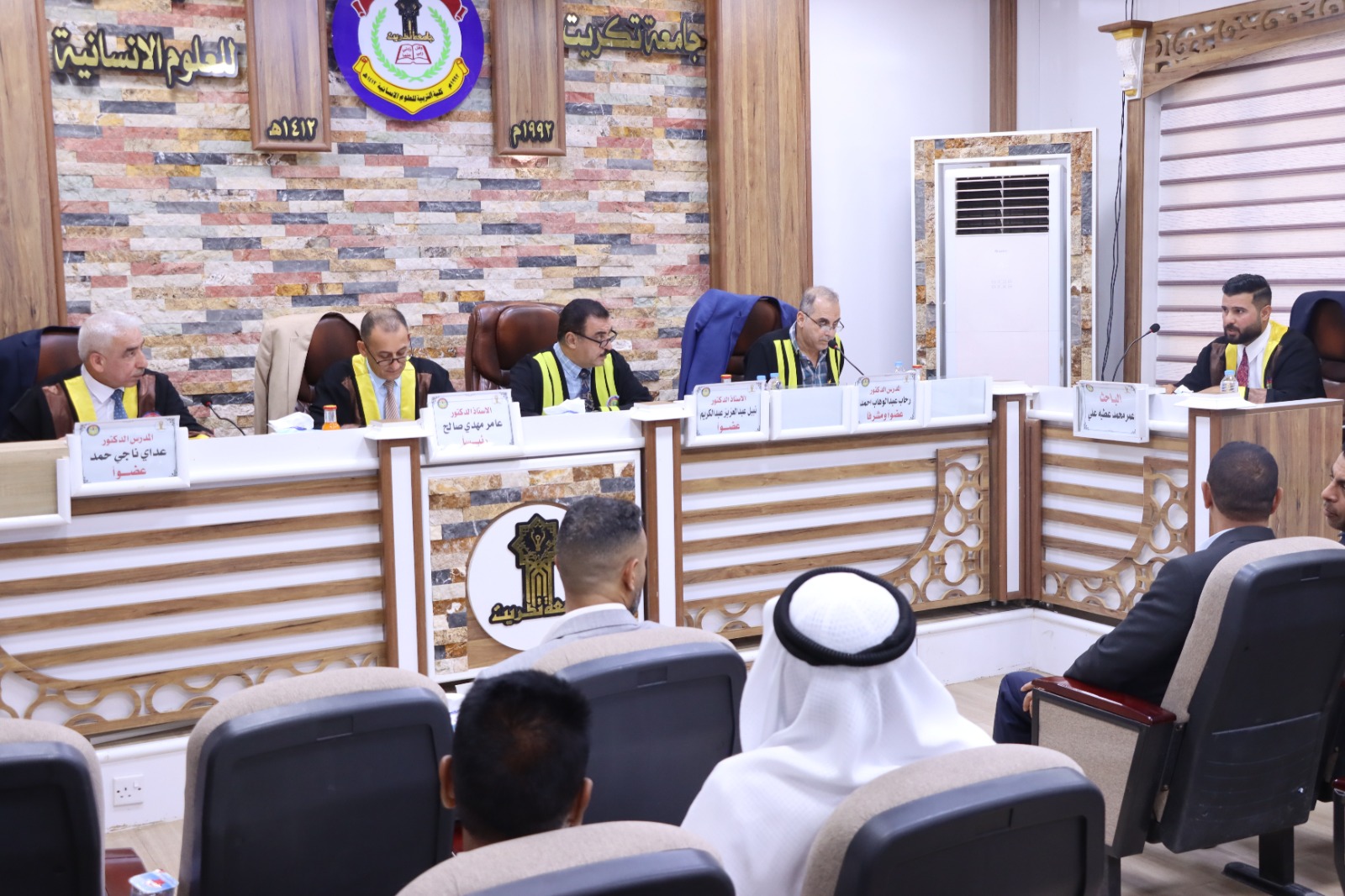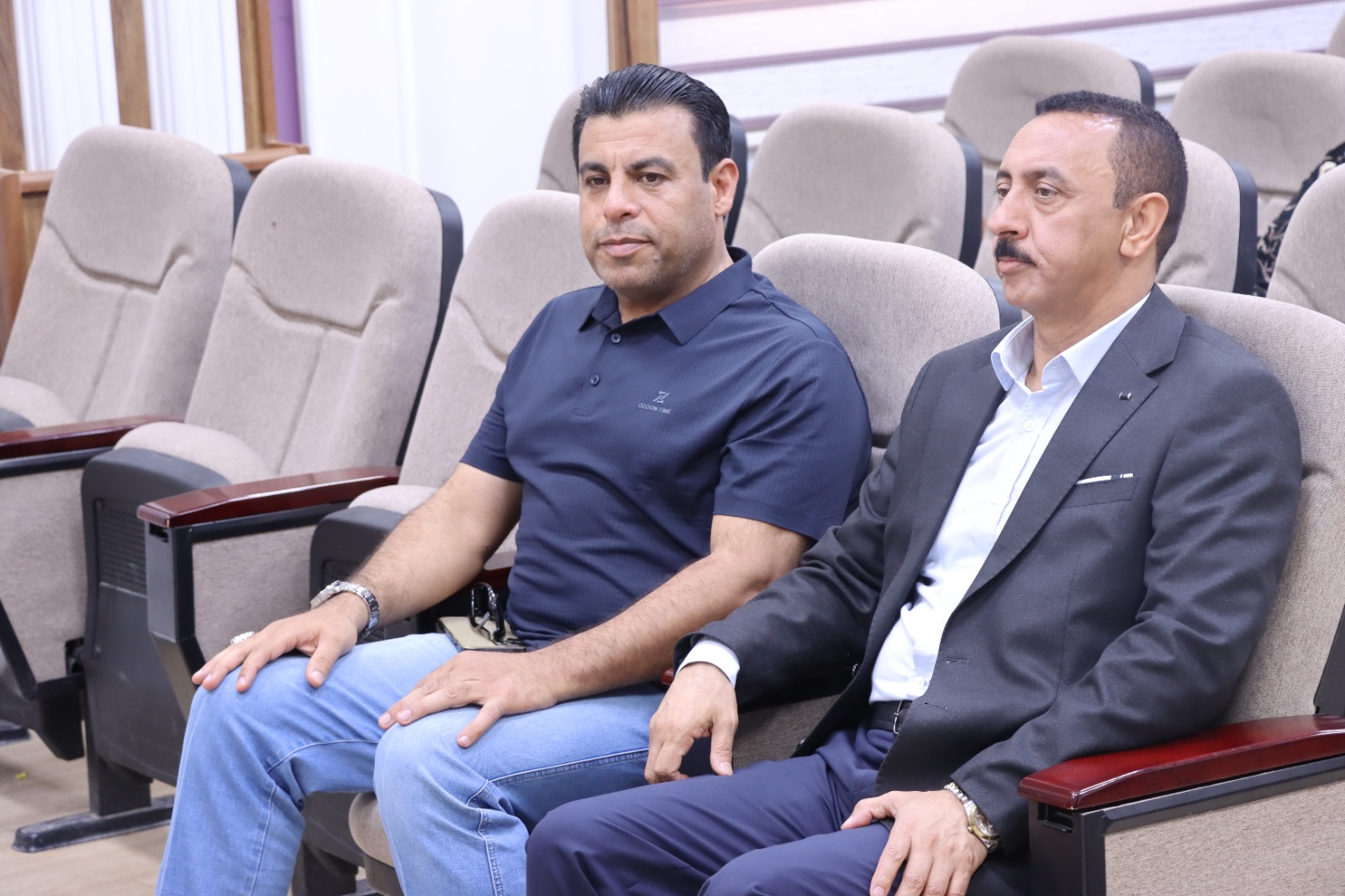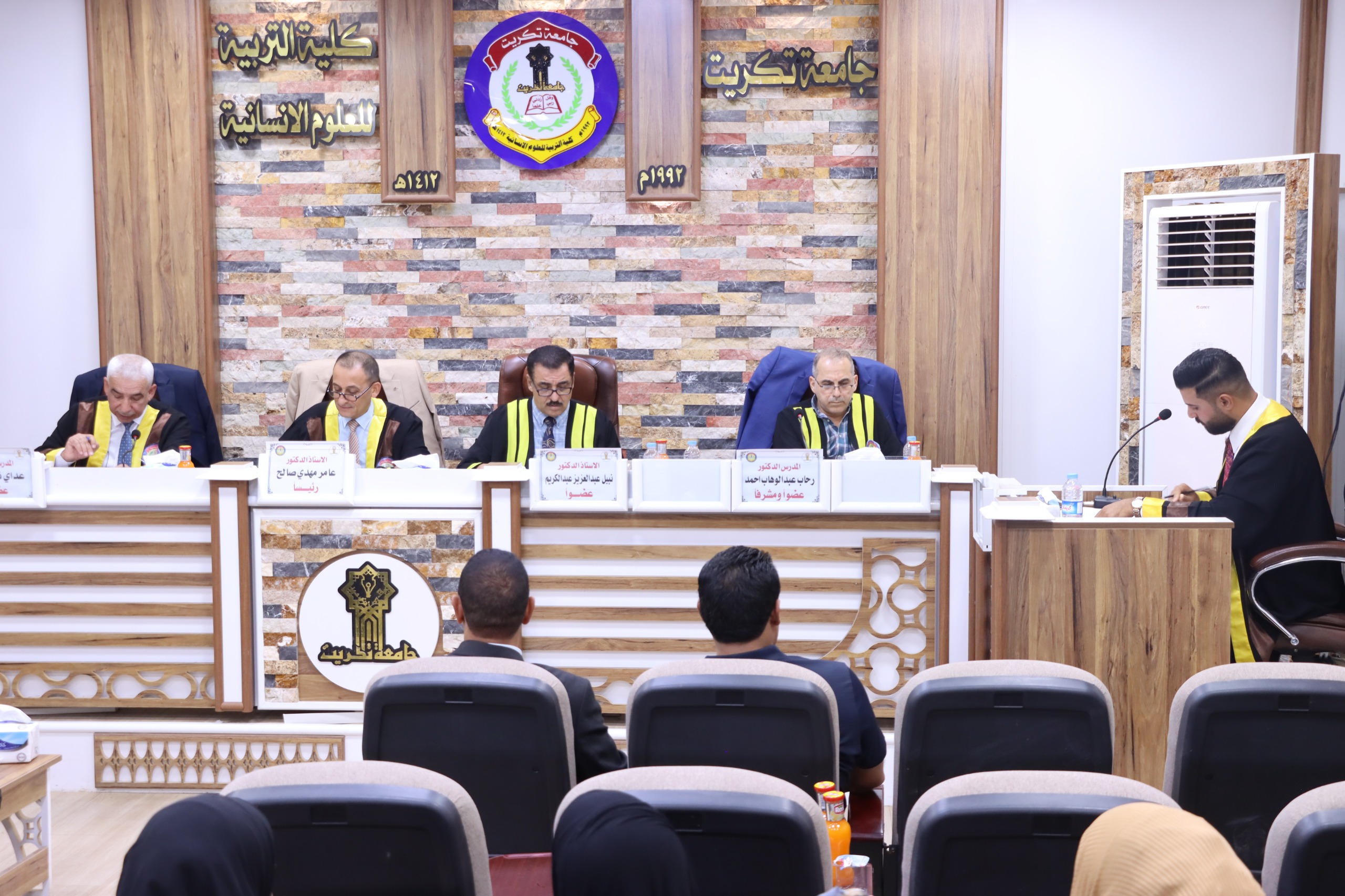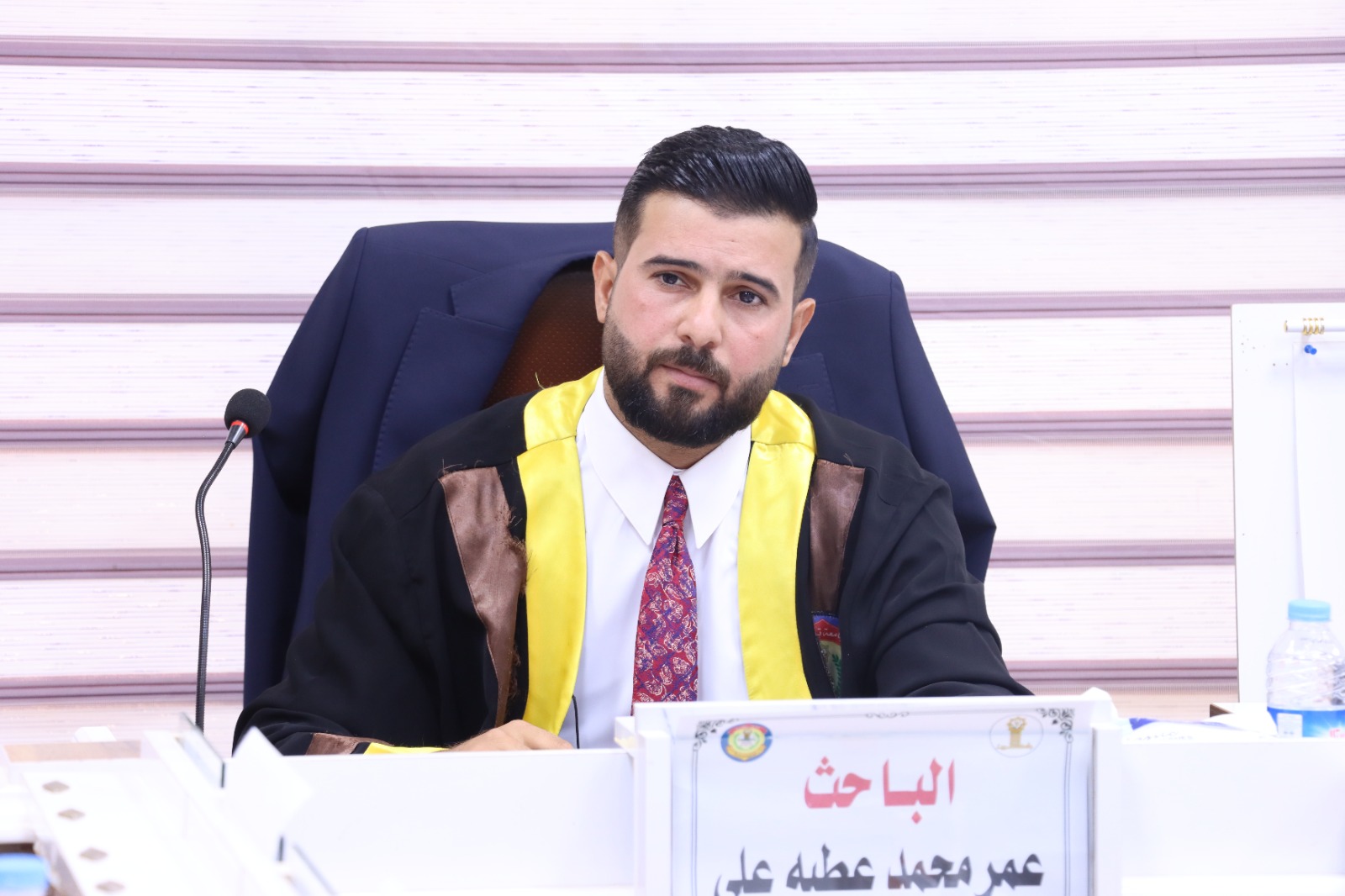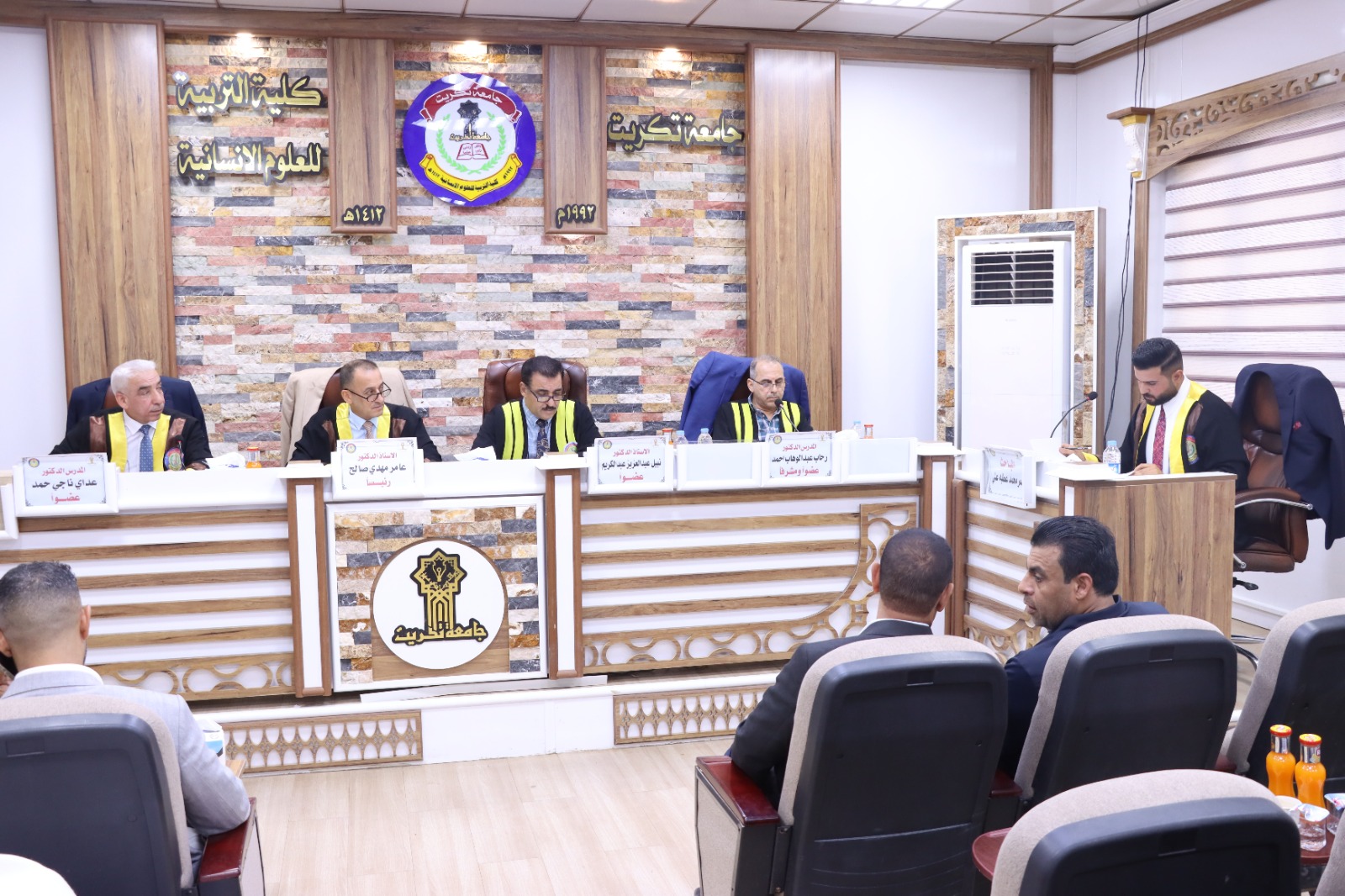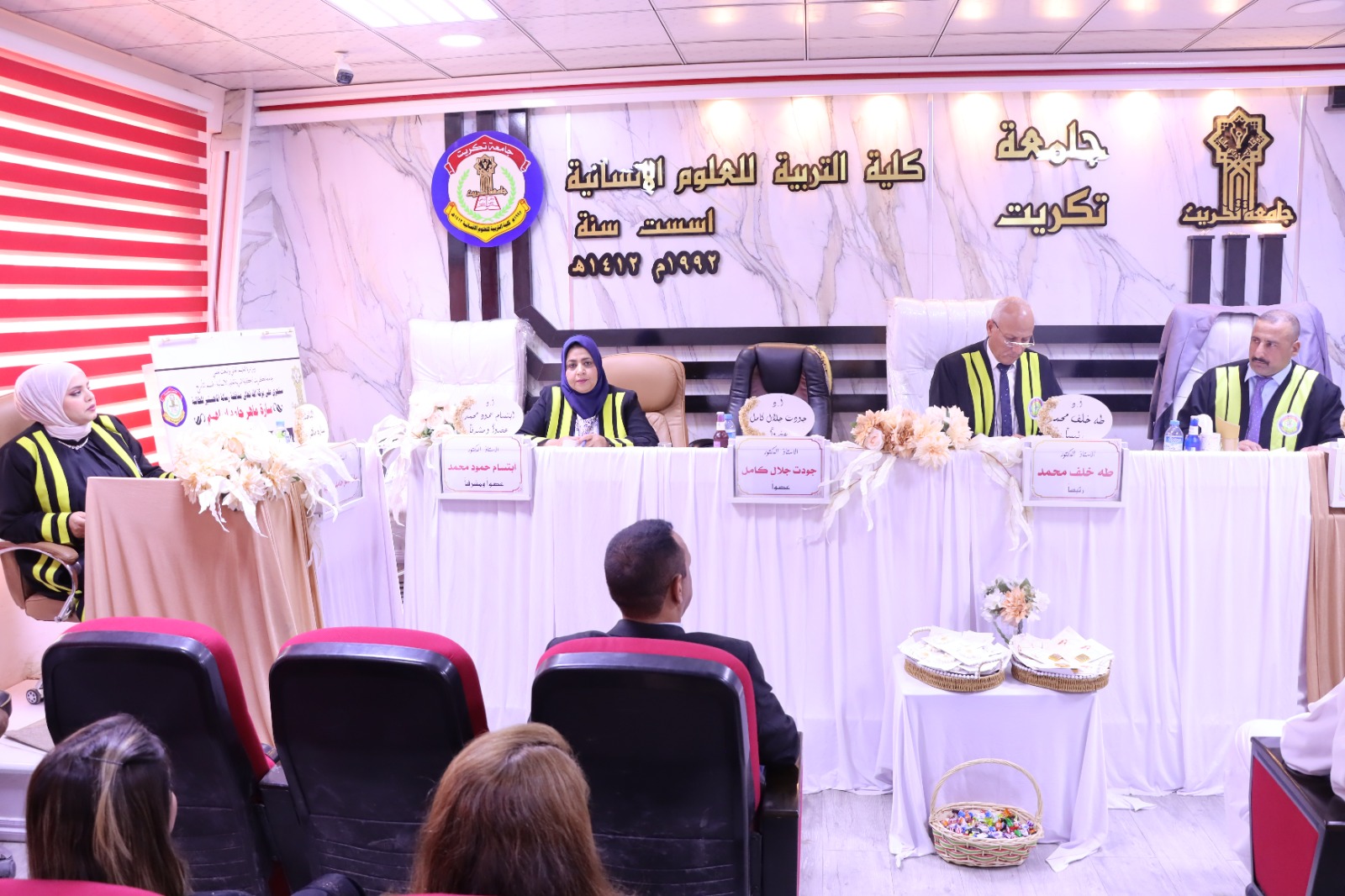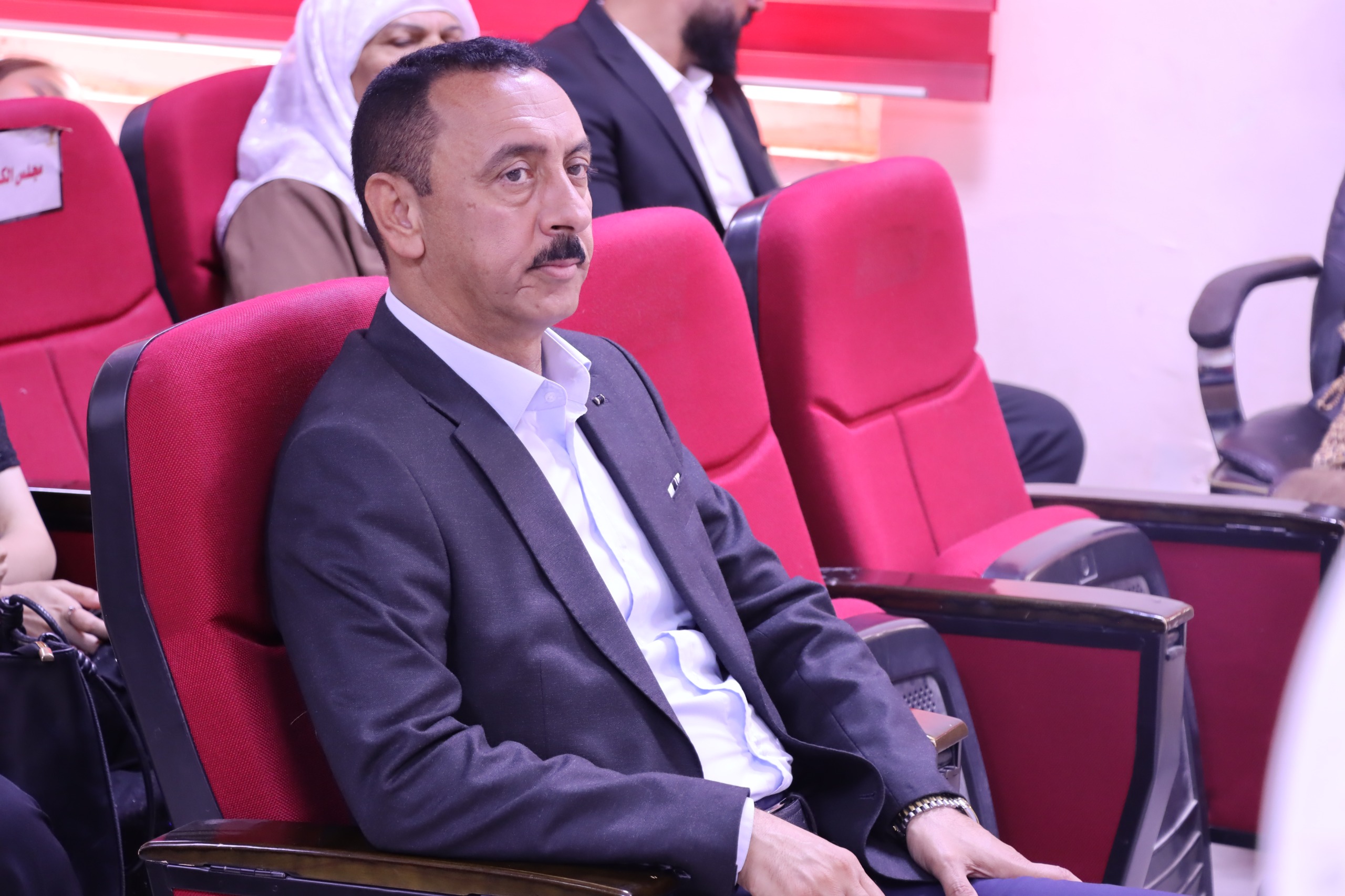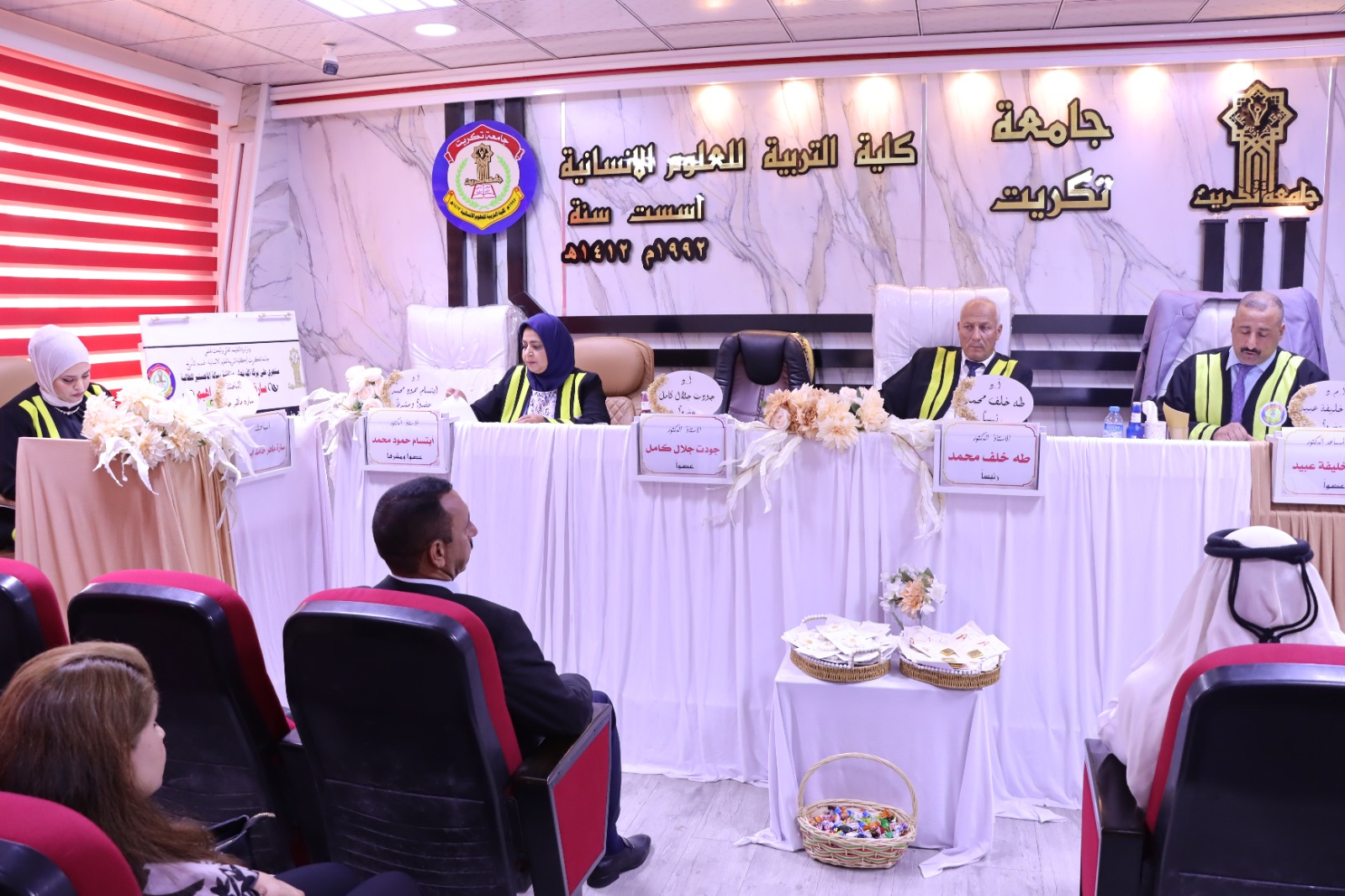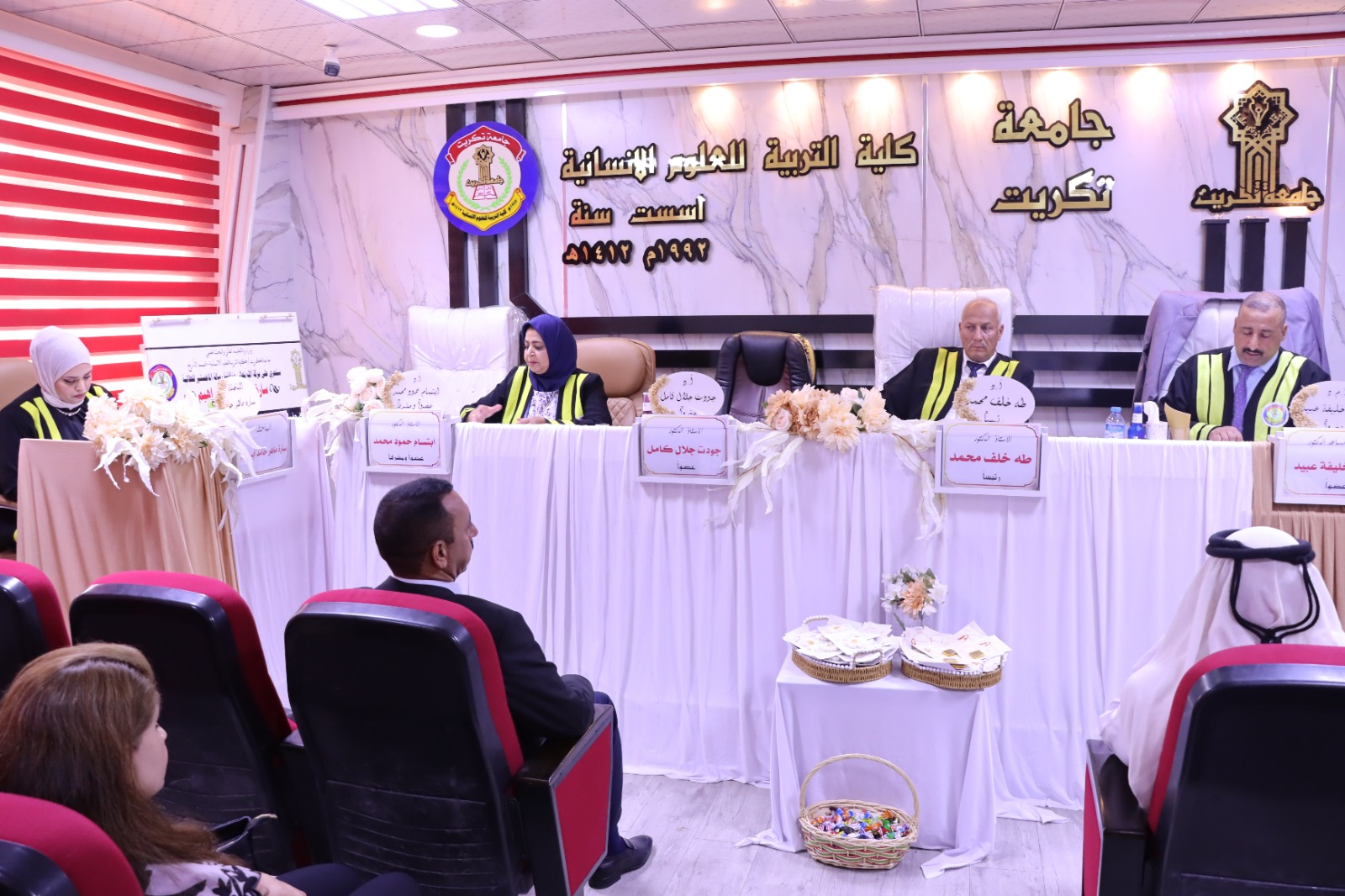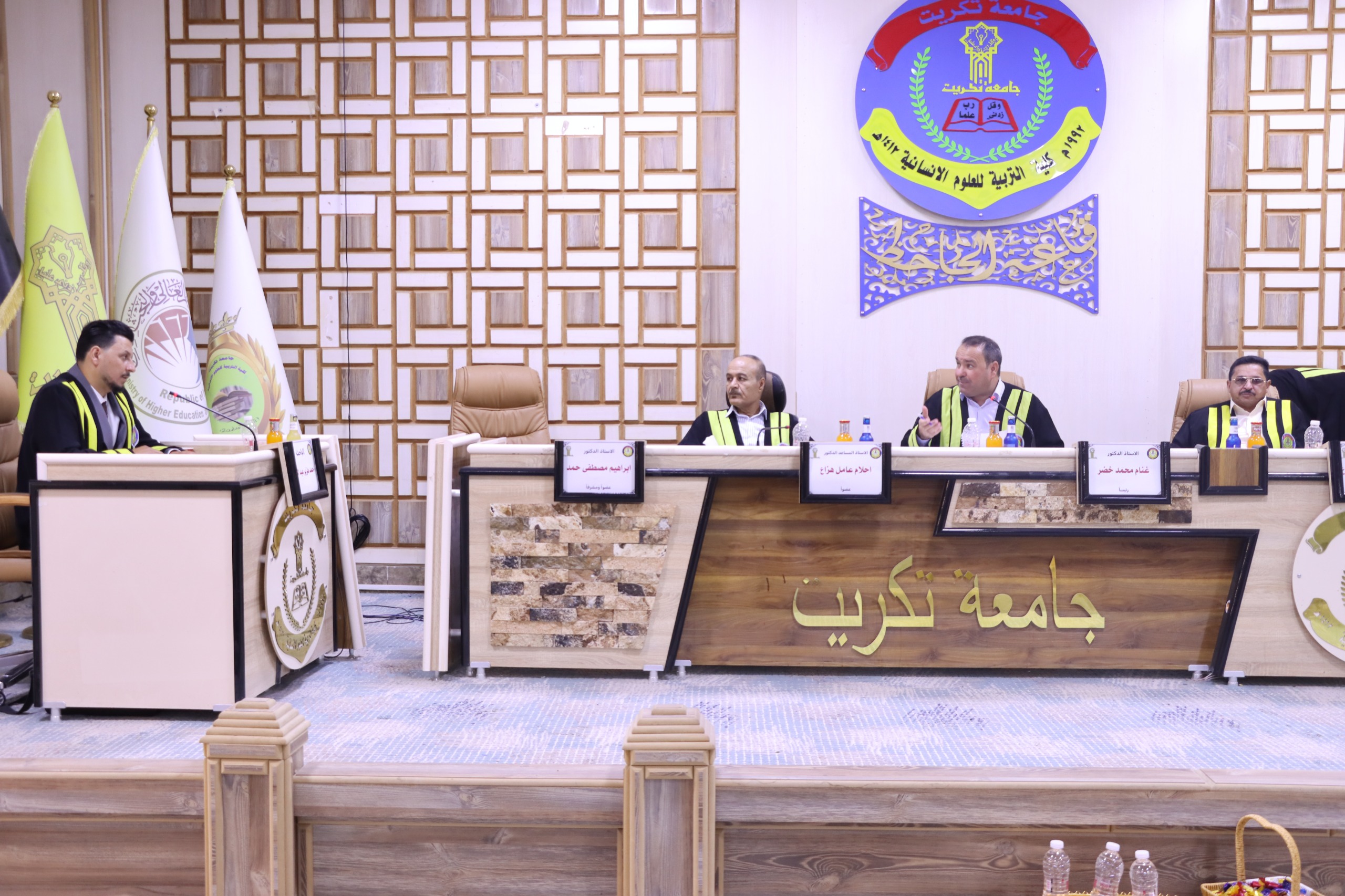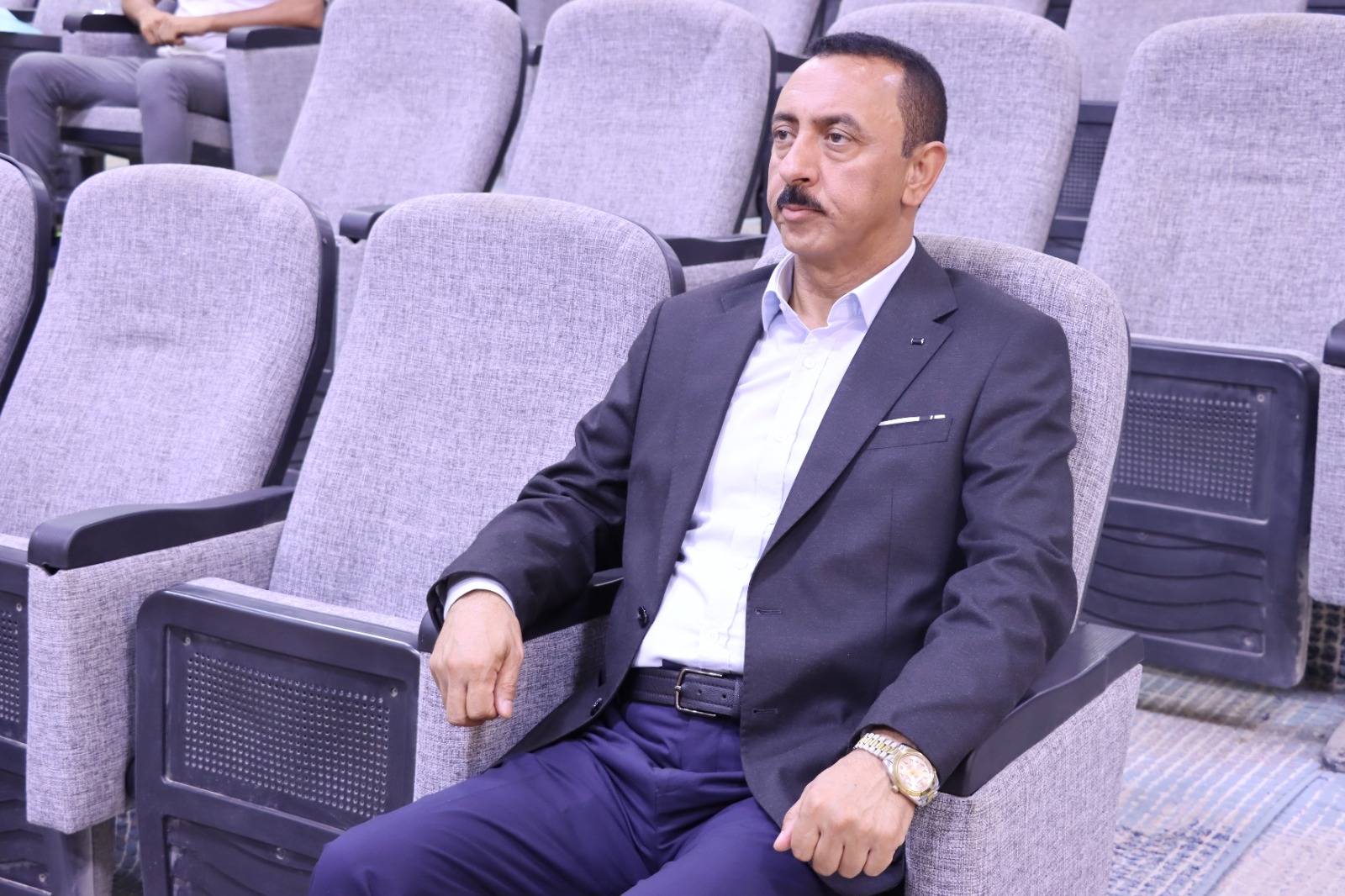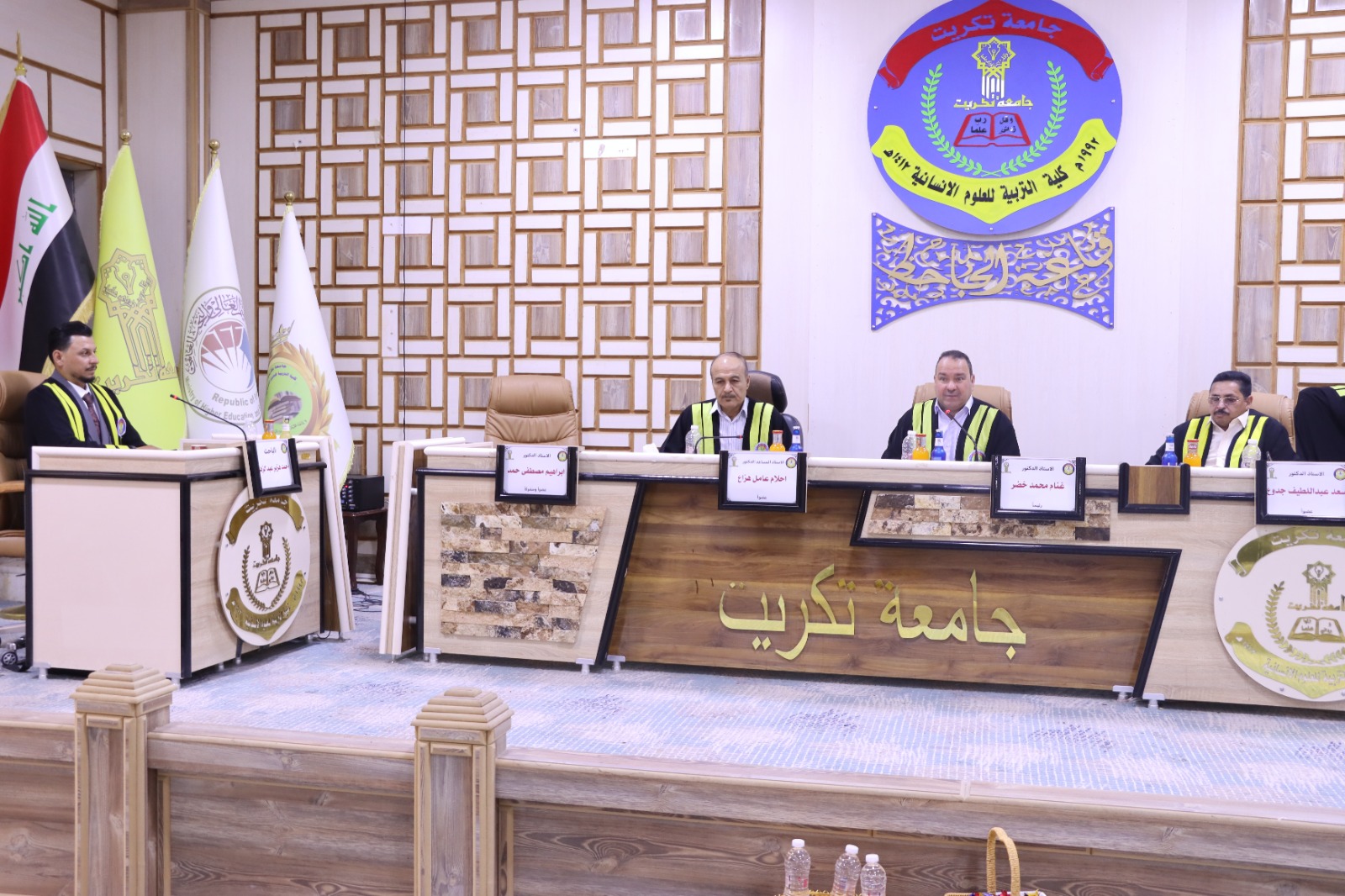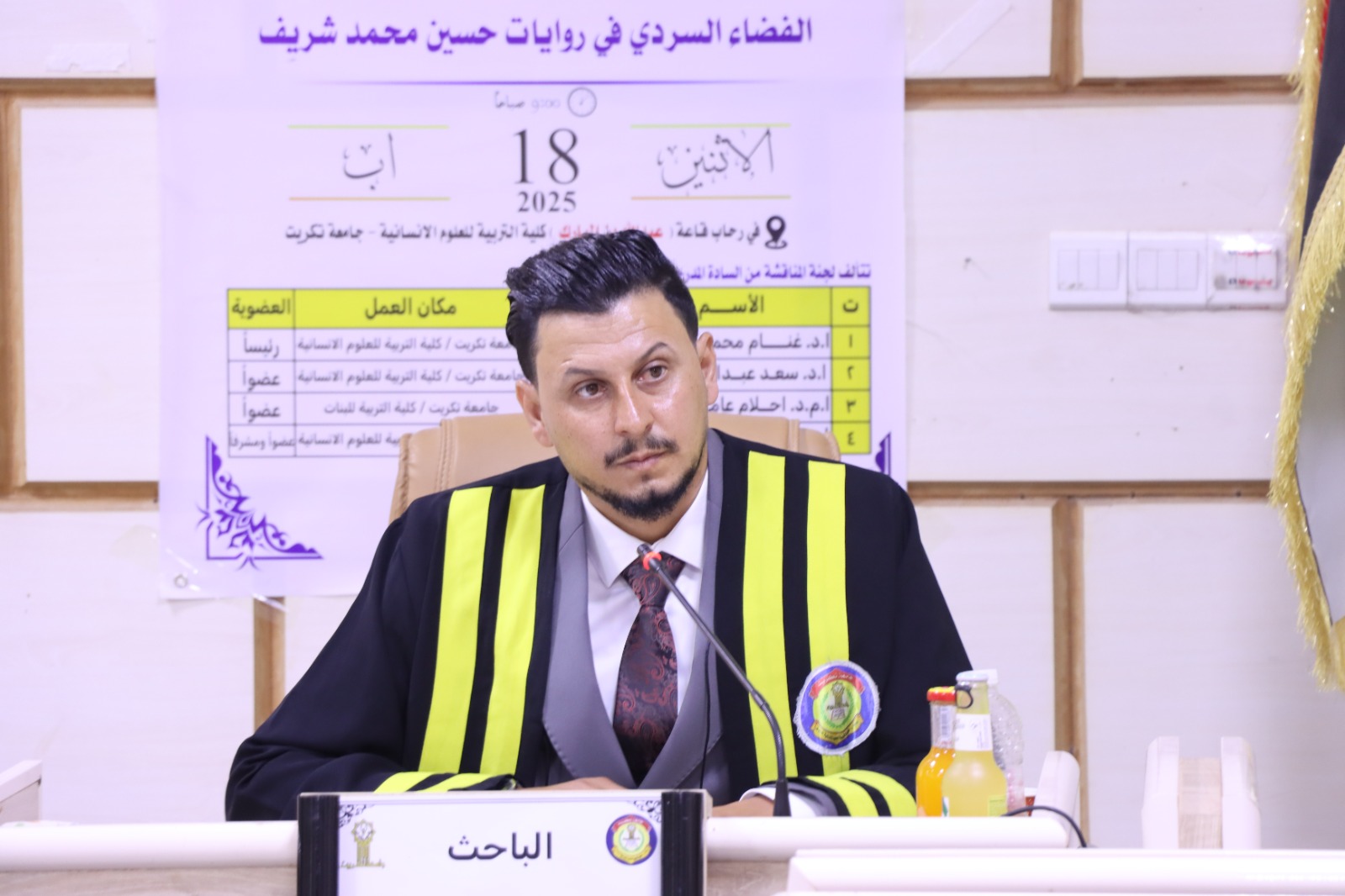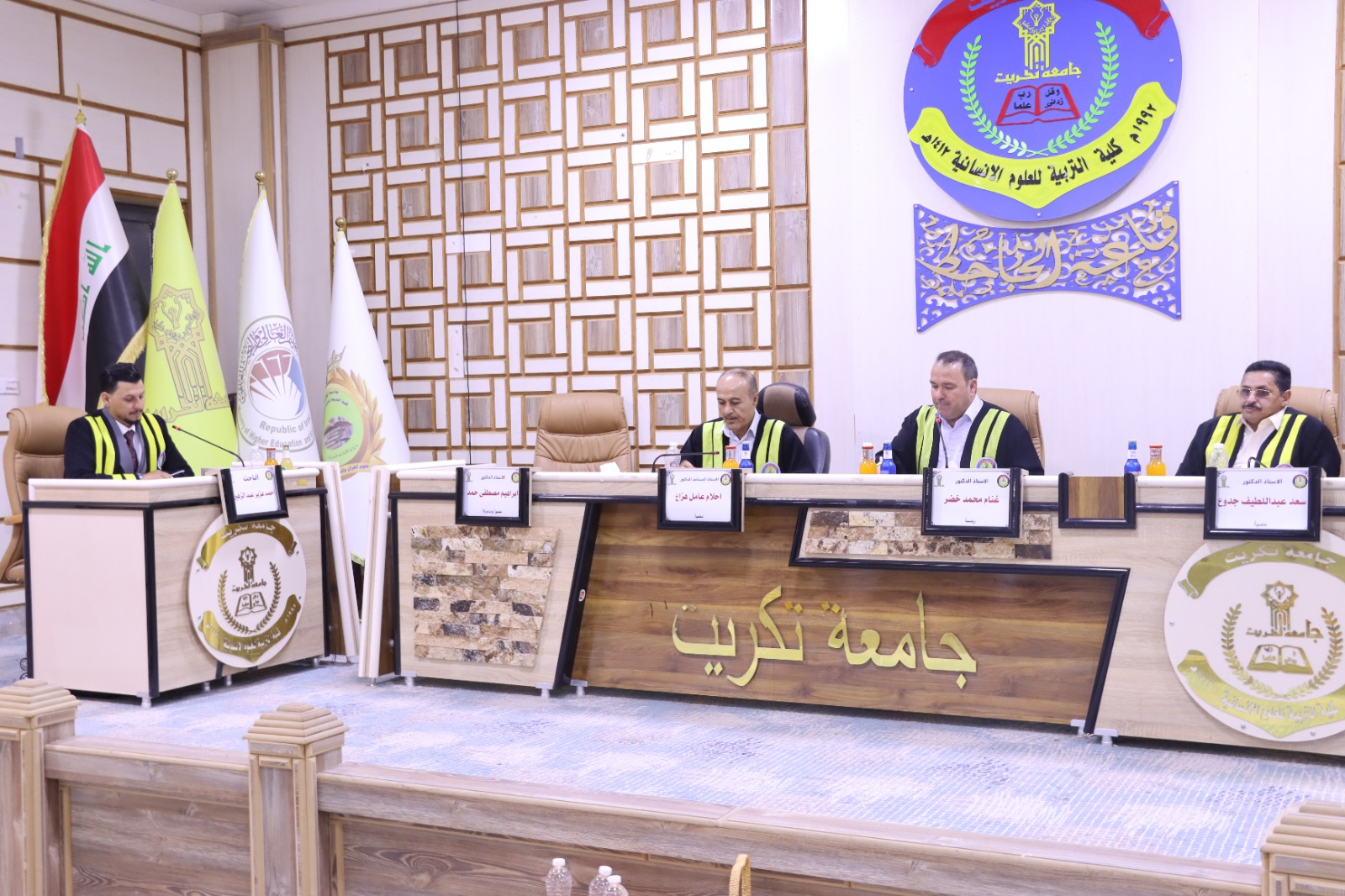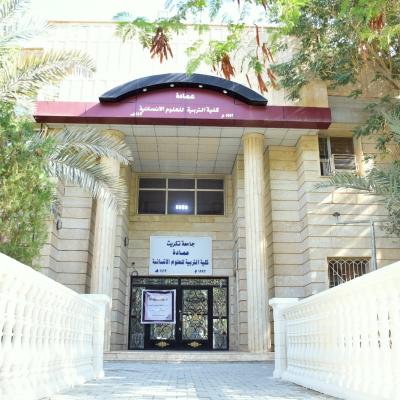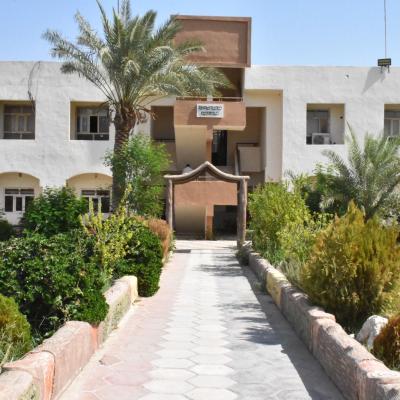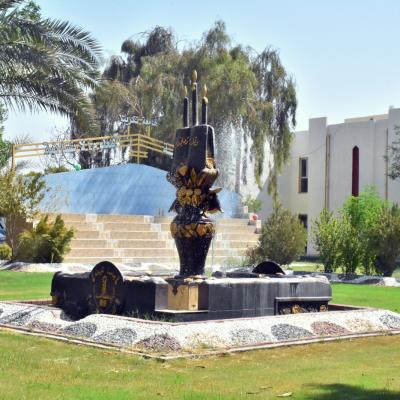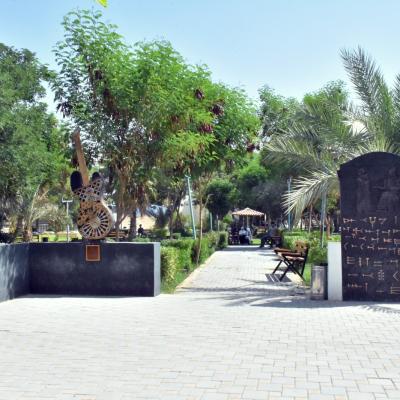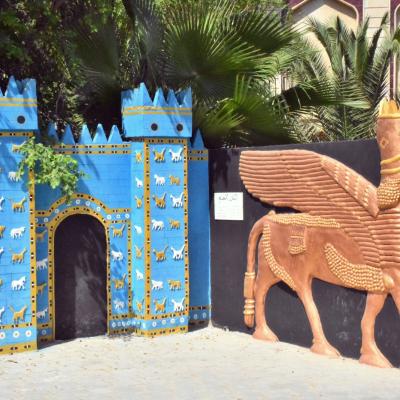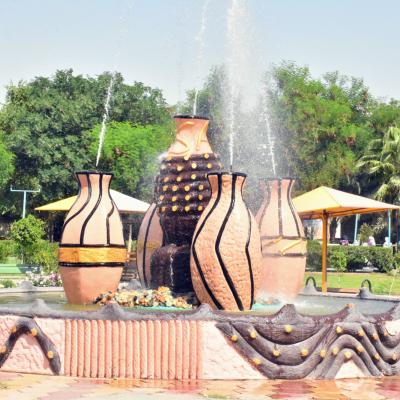On Thursday, September 25, 2025, the Department of History at the College of Education for Humanities held the Ph.D. defense of the student Saad Ahmed Abdullah, entitled: “Social and Economic Life in the Arab-Islamic State through the Narratives of Ibn ʿAsākir in The History of Damascus (1–132 AH / 622–749 CE).”
The study focused on the formative historical period extending from the Prophetic era to the end of the Umayyad era, regarded as one of the most significant phases in Islamic history. This period witnessed the legislation and institutional foundations of the Arab-Islamic state in its social, economic, and administrative aspects. Consequently, it attracted the attention of numerous historians and compilers, among them the eminent historian Abū al-Qāsim ʿAlī ibn al-Ḥasan ibn Hibat Allāh al-Shāfiʿī (d. 571 AH / 1176 CE), known as Ibn ʿAsākir. Recognized as one of the most trustworthy historians, Ibn ʿAsākir documented early Islamic and Umayyad history with remarkable credibility, as acknowledged by both contemporaries and later scholars. His monumental work, The History of Damascus, stands as a treasure of Islamic historiography.
Key Findings of the Study:
- Ibn ʿAsākir’s narratives shed light on social life, providing valuable details that reflect the social reality of the Prophetic, Rashidun, and Umayyad periods. His accounts outlined the composition of society, including Arabs, mawālī (non-Arab clients), dhimmīs, and slaves, as well as the dynamics of their relationships within the Arab-Islamic community.
- He also documented aspects of daily social life, particularly the family as the nucleus of the emerging Islamic society. His narratives offered significant insights into marriage laws and customs, including betrothal, dowry practices, marriage contracts, bridal adornment, wedding ceremonies, and celebratory banquets.
- Ibn ʿAsākir further highlighted social and religious celebrations, describing the customs and traditions associated with them. His accounts detailed the practices of Muslim festivals during the Prophetic, Rashidun, and Umayyad eras.
The Examination Committee consisted of:
- Prof. Dr. Khalid Mahmoud Abdullah – Tikrit University, College of Education for Humanities – Chair
- Prof. Dr. Hatem Fahd Halo – University of Mosul, College of Arts – Member
- Prof. Dr. Khalid Hamo Hassani – Tikrit University, College of Education for Humanities – Member
- Prof. Dr. Naseer Bahjat Fadel – Tikrit University, College of Arts – Member
- Prof. Dr. Muthanna Abbas Awad – Tikrit University, College of Education for Humanities – Member
- Prof. Dr. Uday Salem Abdullah – Tikrit University, College of Education for Humanities – Member & Supervisor
#Media and Government Communication Division – College of Education for Humanities – Tikrit University
